US Says It Will Work With Russia On Iran Despite Ukraine Invasion
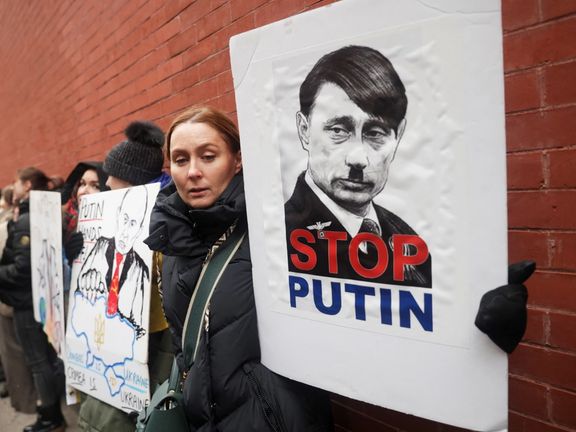
One day after the invasion of Ukraine began the United States announced that it will continue to work with Russia on reviving the 2015 Iran nuclear agreement.

One day after the invasion of Ukraine began the United States announced that it will continue to work with Russia on reviving the 2015 Iran nuclear agreement.
Washington will continue to engage with Moscow over efforts to prevent Iran from developing nuclear weapons, even though Moscow's invasion of Ukraine had made it a "pariah on the world stage," State Department spokesperson Ned Price said on Friday.
Price said US officials would now only engage with Russia counterparts on issues of "fundamental to our national security interest."
Some have expressed reservations about continuing to involve Russia in high-stakes diplomatic and security issues, while Moscow has up-ended the international security structures by its attack on Ukraine with the declared aim of replacing its elected government and deciding its foreign policy course.
Many in Iran are criticizing their government for having given Russia control over the nuclear talks. Moscow has increasingly acted as a mediator between Tehran and Washington, while critics in Iran say its intentions cannot be trusted.
"The fact that Russia has now invaded Ukraine should not give Iran the green light to develop a nuclear weapon," Price added.
Iran’s chief negotiator left the negotiations just days before the invasion and returned to Tehran ostensibly for consultations.
Another US official was quoted by Reuters as saying that significant progress has been made in the talks but serious issues remain to be resolved.
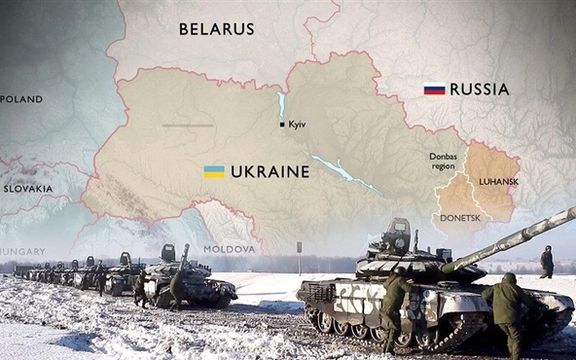
Iran's state television, operating under the control of Supreme Leader Ali Khamenei, has been supporting Russia's invasion of Ukraine during the past two days.
With a government appropriation of $200 million a year and huge advertising income, the coverage of the state TV was so blatant that according to former lawmaker Ali Motahari it is as if Iran is a Russian colony.
Meanwhile, as President Ebrahim Raisi rushed to express support for Russia, observers on social media said the sheer fact that he called Vladimir Putin in this situation, puts the Islamic Republic in an embarrassing situation.
Later Friday, Iran's security Chief Ali Shamkhani also supported Russia's military move into Ukraine. The state TV, Raisi and Shamkhani portrayed Russia's aggression as an attempt to defend itself against advances by NATO, fully endorsing Russia’s claims.
Possibly as a concerted attempt, nearly all the Friday Prayer Imams in various Iranian provinces trumpeted the idea of Russia defending itself against NATO in their sermons, Mehr news agency reported.
Asr Iran website in Tehran wrote on Friday that Iranian conservatives have been cheerfully welcoming Russia's attack on Ukraine. The website quoted some conservatives as saying that the United States has left Ukraine alone in the face of invasion and other countries should not count on US support.
The website noted that the state TV does not use the words "attack" or "invasion" about Russia's move and constantly talks about Russia's "special operation." According to the website, the state TV praises Putin for his "authoritarian rule" as an element that reinforces likeminded people in Iran in their confrontation with the supporters of Western liberalism.
Meanwhile, commentators on state TV keep saying that as the United States is busy with the Ukraine crisis, it can no longer exert pressure on Iran in the nuclear negotiations. At the same time, as Russia's move brings on a series of European and US sanctions against Russia, this gives Iranian hardliners a good feeling that there are not alone in their isolation.
The website also added that it would have been difficult for Iran to defend Russia had it attacked a Muslim country such as Afghanistan or Azerbaijan, but Iranian leaders believe that no one in the country expects them to defend the people of Ukraine.
However, Iran has turned a blind eye to persecution of Muslims in China and elsewhere.
Iranian leaders' also think that the invasion of Ukraine will portray Russia as a more powerful ally for the Islamic Republic, although technically, Russia is not Iran's strategic ally. Russia has never stopped any of the UN sanctions and resolutions against Iran in the past 15 years.
Nonetheless, the paradoxical point is that Iran officially opposes all forms of separatism. Supporting the separatists in Ukraine could be embarrassing for Supreme Leader Ali Khamenei and therefore, this is a point the state TV tries to ignore in its reporting.
Conservative commentator Jalal Khoshchehreh warned the Iranian government that Russia's actions in Ukraine and Iran's support for it will promote separatism in the rest of the world.
Khoshchehreh suggested that Iran should defend Ukraine's territorial integrity. He was probably pointing to the fact that there are several ethnic and linguistic groups all around Iran with some people among them having separatist tendencies. Stressing that Russia's invasion of Ukraine will empower radical nationalists everywhere, he asked: "Are other countries entitled to deploy forces to a foreign country to support their separatists?"
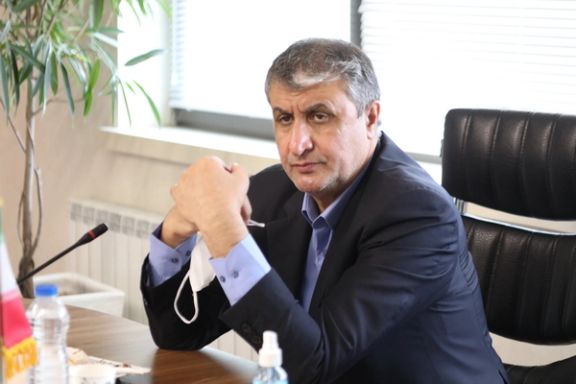
Iran will continue to enrich uranium to 20% purity even after sanctions are lifted and the 2015 nuclear deal is revived, the country's nuclear chief said Friday.
"(Uranium) enrichment ... continues with a maximum ceiling of 60%, which led Westerners to rush to negotiations, and it will continue with the lifting of sanctions by both 20% and 5%," the head of Iran's Atomic Energy Organization, Mohammad Eslami, was quoted by the semi-official news agency Fars as saying.
The 2015 deal, known as JCPOA, restricts the purity to which Iran can enrich uranium to 3.67%, far below the roughly 90% that is weapons-grade or the 20% Iran reached before the deal. Iran is now enriching to various levels, the highest being around 60%.
Iran began exceeding the JCPOA enrichment limit up to 20 percent purity after the United States withdrew from the agreement in 2018 and imposed sanctions on Tehran.
After US elections in 2020, Iran raised the enrichment level to 60 percent, once the US signaled it was ready to start negotiations to return to the JCPOA.
Reuters reported last week that a draft agreement partially ready after more than 10 months of talks in Vienna stipulates that Iran will return to 5 percent enrichment and the US would start loosening sanctions.
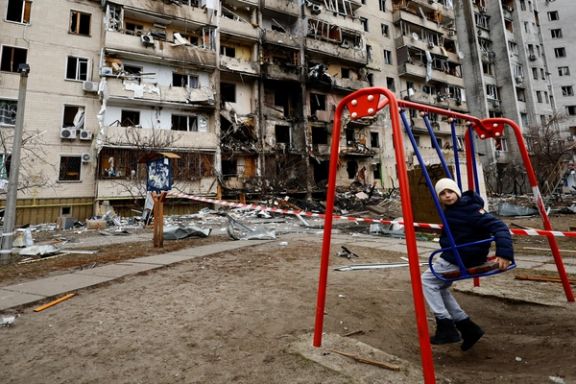
In a phone call with Russia’s President Vladmir Putin Thursday, Iran’s President Ebrahim Raisi called Nato’s “continued expansion” eastwards “a serious threat.”
The phone call, apparently initiated by Raisi, followed Russia's invasion of Ukraine. "The President of Iran expressed understanding with respect to Russia’s security concerns caused by the destabilizing actions of the United States and NATO," a Kremlin press release said Thursday evening.
Putin told Raisi that Russia had taken "a legitimate response" to decades of the “West” violating security agreements and efforts to undermine Russian security, Press TV, Iran's state-run English-language channel, reported.
“The eastward expansion of Nato is a source of tension,” Raisi told Putin. “The continued expansion of Nato is a serious threat against the stability and security of independent countries in various regions of the world.”
Ten eastern European countries have joined Nato, a military alliance, since 1999. With the Ukrainian government wanting to follow suit, Moscow had requested assurances from Nato that Ukraine would not be admitted.
Some Iranian journalists and media have criticized Raisi's call. "What is the justification for Raisi's call to Putin on the first night of Russia's invasion of Ukraine and subtly supporting Russia?" Behrouz Azizi, an Iranian journalist who calls himself a "moderate conservative", tweeted Thursday.
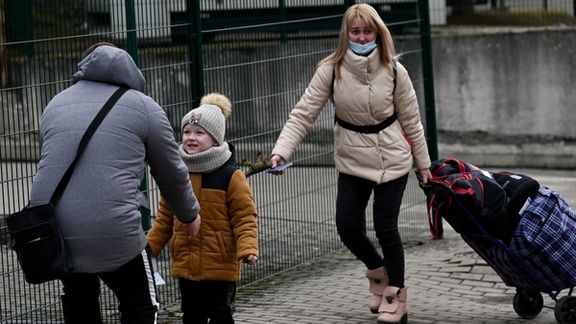
Others have argued that Raisi's views on Nato breach both Iran's official "Neither West, Nor East" mantra and its constitution. "Raisi violated Articles 152 and 154 of the Constitution without any qualms" with his phone call with Putin, Milad Alavi, journalist in Tehran, tweeted Thursday. Article 152 requires “non-alignment with respect to the hegemonist superpowers,” taken at the time to be the United States and the Soviet Union.
Rallying to the Ukrainian cause, journalist Saeed Maleki lashed out at Raisi, tweeting: "You've become so Russophile that you don't even dare to openly condemn the war on Ukraine and the killings. In the phone call all you can do is wishing that these have good consequences…Nothing worse than this could be said."
Russian 'Honeymoon' Won’t Last
Former Iranian ambassador to Baku, Afshar Soleimani, said Iran has not officially approved of Russia's invasion but is standing by Russia's side with "subtle approval." Ali Motahari, a former deputy speaker of parliament, criticized the state media for reporting as if "the mouthpiece of a Russian colony."
Others highlighted Nato’s role.In a series of tweets Friday, Abdollah Ganji, former managing director of Javan newspaper, which is affiliated to the Revolutionary Guards, said Ukraine President Volodymyr Zelenskyy had set the course for war by visiting Nato headquarters last year. Ganji predicted Russia’s "honeymoon in Ukraine" would not last.
The Friday imam of Tehran, Ayatollah Ahmad Khatami, in his sermon Friday said Nato and the US were "meddling all around the world" and "complicating the situation" in eastern Europe as the European Nato powers were "beating on the drums of war."
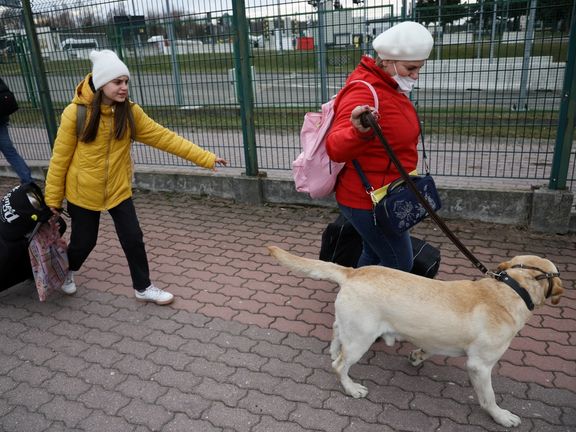
Iran has asked Hungary for humanitarian assistance to facilitate the evacuation of its citizens living in Ukraine through Hungarian territory.
Foreign Minister Hossein Amir-Abdollahian held a telephone conversation with his Hungarian counterpart Péter Szijjártó on Friday about the crisis in Ukraine and how Budapest can help Iranian nationals who want to leave Ukraine.
“Iranian citizens, including students, families of diplomats, and other Iranians living in Ukraine, want to enter the Polish and Hungarian borders to return to Iran,” Amir-Abdollahian said.
According to Szijjártó, Hungary will open a humanitarian corridor for citizens from third-party countries like Iran or India fleeing Ukraine.
It will let them in without visa and take them to the nearest airport, which is Debrecen, Hungary’s second-largest city about 170 kilometers from the Ukrainian border.
Szijjarto also said in a video posted on his Facebook page that cars were queuing for up to 3-5 kilometers on the Ukrainian side at five crossing points.
Iran’s Foreign Ministry said on Thursday that it is trying to obtain necessary permissions for one or more special flights to evacuate Iranians from some parts of Ukraine despite the fact the country’s airspace remains closed because of the Russian invason.
According to estimates, about 5,000 Iranian nationals work or study in Ukraine.
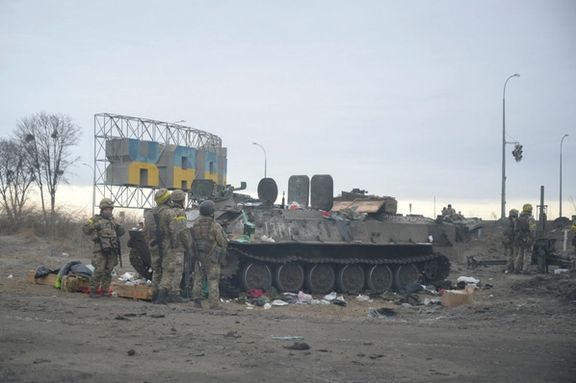
A prominent Iranian politician has expressed cautious optimism that the Russian invasion of Ukraine might speed up a nuclear deal between Tehran and Washington.
Negotiations between Iran and world powers to revive the 2015 nuclear deal, known as JCPOA have unofficially paused in Vienna as Iranian envoy Ali Bagheri-Kani returned to Tehran earlier this week ostensibly for consultations.
Former chairman of Iranian parliament’s national security committee, Heshmatollah Falahatpisheh told Aftab News in Tehran on Friday that “the JCPOA became a victim of the war in Ukraine.” He added, “Although I am pessimistic about the long shadow of the war on JCPOA talks, but I still believe that Putin’s attack on Ukraine might lead to a willingness in the West to bring talks with Iran to a conclusion.”
Falahatpisheh noted two possible reasons for his belief that the Ukraine war might speed up an agreement in Vienna. He argued that the United States and its European allies do not want to see Iran fall further into the Russian orbit. Second, they want to end Russia’s influence in the talks.
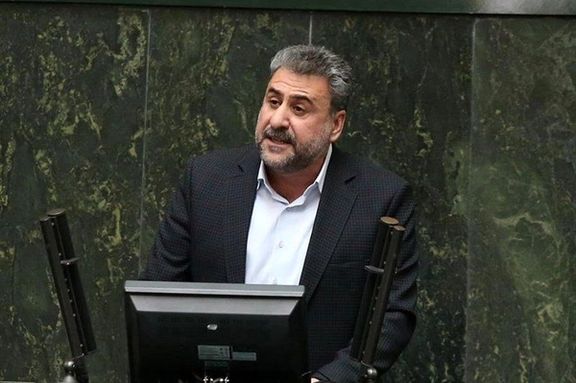
Indeed, Moscow’s chief negotiator Mikhail Ulyanov has assumed an increasingly prominent role in the talks since November, when Iran’s new delegation headed by hardliners resumed the talks in Vienna.
Many in Iranian media have questioned his role as an active mediator, showcasing his photos sitting alone with US chief envoy Robert Malley in hotel conference rooms on several occasions. Even in Tehran’s press controlled by the government, many questioned why Iran does not directly negotiate with the Biden Administration instead of allowing Russia to act as a broker.
In the same vein, some might wonder if Bagheri-Kani’s sudden return to Tehran a few days ago might not have been related to Russia’s impending attack on Ukraine.
There are some questions about what path Tehran will choose after the unmistakable jolt to international relations by Putin’s invasion.
Tehran might now calculate that it does not need an agreement with the West as long as it is able to break US sanctions and export oil, given the global need for fossil fuels amid heavy sanctions on Russia. Shipments have already reached above one million barrels a day, mainly to China. In the meantime, it can continue its uranium enrichment, become a nuclear threshold state, and have more leverage in any future talks.
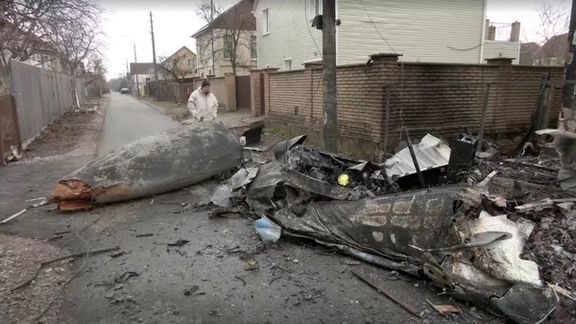
The opposite is also possible, though less likely. Tehran might see Russia as isolated and not useful any longer as a diplomatic backer. It might decide to make concessions to the West now, rather than live with US sanctions, amid an environment of Western unity reminiscent of the Cold War.
But remaining a Russian ally in these circumstances might offer Iran even some military cover and weapons systems, as some sort of a ‘Cold War satellite’ for Moscow.
Falahatpisheh in his interview argued that he has repeatedly expressed his preference for a quick agreement before an external factor derails the nuclear talks. Russia is bound to use every card in its pocket now, including the Iran nuclear issue, he said.
The former senior lawmaker even went as far as indirectly hinting that Moscow has already used its influence in the Vienna talks to detriment of Iran. “Russia knew very well that in case of an agreement in Vienna and the lifting of sanctions, Iran could boost its potential for oil and gas exports to Europe and elsewhere in a short period of time and tried to control the Vienna negotiations.” He added, “If Iran had reached an agreement, now it could sell its oil at above $100 a barrel and regain its global market share.”
Falhatpisheh expressed deep regret that President Ebrahim Raisi and chief negotiator Bagheri-Kani “relinquished the management of the talks to the Russians, paving the way for a suitable environment for the Kremlin to pursue its interests”.